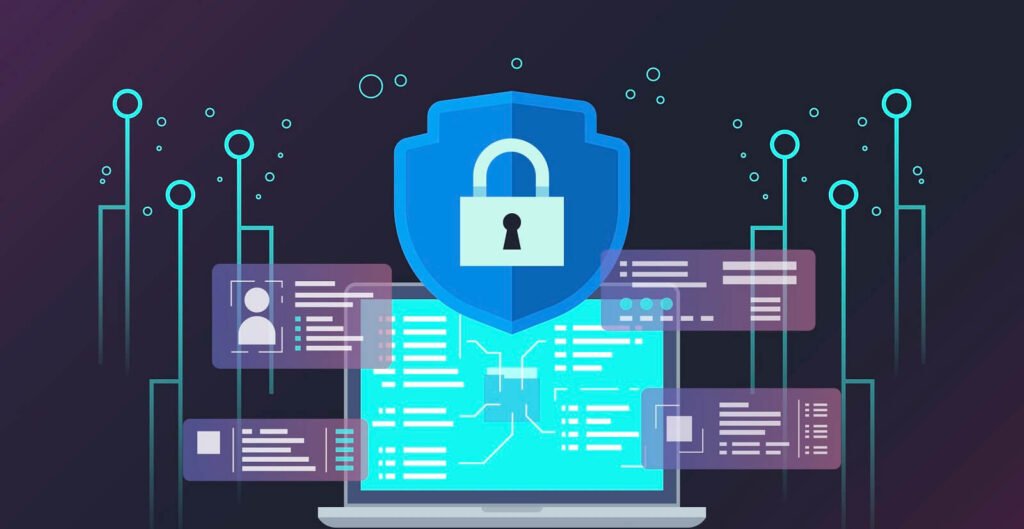ETHICAL HACKING

What is Ethical Hacking?
Ethical hacking, also known as Penetration Testing or White Hat Hacking, is the practice of simulating cyberattacks on a computer system or network with the permission of the owner. The goal is to identify vulnerabilities that malicious hackers (black hats) could exploit to gain unauthorized access, steal data, or disrupt operations.
Why it is important getting trained in Ethical Hacking?
Demand for Ethical Hackers:
Growing Cyber Threats: The number and sophistication of cyberattacks are constantly rising. Organizations are increasingly reliant on technology, making them prime targets. This creates a high demand for skilled ethical hackers to identify and address these vulnerabilities.
Security Skills Gap: There’s a significant gap between the demand for cybersecurity professionals and the available workforce. Earning an ethical hacking certification can position you for a rewarding career in this growing field.
Boosted Cybersecurity Posture:
Proactive Defense: Ethical hacking equips you with the knowledge and skills to proactively identify and address security weaknesses in systems and networks before they can be exploited by malicious actors. This proactive approach significantly reduces the risk of data breaches and costly downtime.
Improved Security Measures: Through ethical hacking practices, you’ll gain insights into how attackers think and the techniques they use. This knowledge allows you to implement stronger security measures, such as firewalls, intrusion detection systems, and secure coding practices, to make it more difficult for attackers to gain a foothold.
Career Advancement:
Valuable Skillset: An ethical hacking certification demonstrates your expertise in cybersecurity and penetration testing. This valuable skillset is highly sought-after by organizations across various industries, opening doors to exciting career opportunities.
Higher Earning Potential: Ethical hacking skills are in high demand, and professionals with these certifications often command higher salaries compared to those without them.
Beyond Technical Skills:
Ethical Mindset: Ethical hacking training goes beyond just technical skills. It also emphasizes the importance of ethical considerations and responsible disclosure of vulnerabilities. You’ll learn how to conduct ethical hacking engagements within legal boundaries and report your findings in a way that helps organizations remediate the issues.
Problem-Solving Skills: Ethical hacking challenges you to think critically and creatively to find innovative solutions to complex security problems. This refined problem-solving ability is a valuable asset in any cybersecurity role.
In conclusion, ethical hacking training offers a unique combination of technical expertise, career advancement opportunities, and the ability to make a positive impact on cybersecurity. If you’re interested in a career in cybersecurity or want to bolster your organization’s security posture, then getting trained in ethical hacking is a worthwhile investment.


Why it is important getting trained in Ethical Hacking?
Demand for Ethical Hackers:
Growing Cyber Threats: The number and sophistication of cyberattacks are constantly rising. Organizations are increasingly reliant on technology, making them prime targets. This creates a high demand for skilled ethical hackers to identify and address these vulnerabilities.
Security Skills Gap: There’s a significant gap between the demand for cybersecurity professionals and the available workforce. Earning an ethical hacking certification can position you for a rewarding career in this growing field.
Boosted Cybersecurity Posture:
Proactive Defense: Ethical hacking equips you with the knowledge and skills to proactively identify and address security weaknesses in systems and networks before they can be exploited by malicious actors. This proactive approach significantly reduces the risk of data breaches and costly downtime.
Improved Security Measures: Through ethical hacking practices, you’ll gain insights into how attackers think and the techniques they use. This knowledge allows you to implement stronger security measures, such as firewalls, intrusion detection systems, and secure coding practices, to make it more difficult for attackers to gain a foothold.
Career Advancement:
Valuable Skillset: An ethical hacking certification demonstrates your expertise in cybersecurity and penetration testing. This valuable skillset is highly sought-after by organizations across various industries, opening doors to exciting career opportunities.
Higher Earning Potential: Ethical hacking skills are in high demand, and professionals with these certifications often command higher salaries compared to those without them.
Beyond Technical Skills:
Ethical Mindset: Ethical hacking training goes beyond just technical skills. It also emphasizes the importance of ethical considerations and responsible disclosure of vulnerabilities. You’ll learn how to conduct ethical hacking engagements within legal boundaries and report your findings in a way that helps organizations remediate the issues.
Problem-Solving Skills: Ethical hacking challenges you to think critically and creatively to find innovative solutions to complex security problems. This refined problem-solving ability is a valuable asset in any cybersecurity role.
In conclusion, ethical hacking training offers a unique combination of technical expertise, career advancement opportunities, and the ability to make a positive impact on cybersecurity. If you’re interested in a career in cybersecurity or want to bolster your organization’s security posture, then getting trained in ethical hacking is a worthwhile investment.








